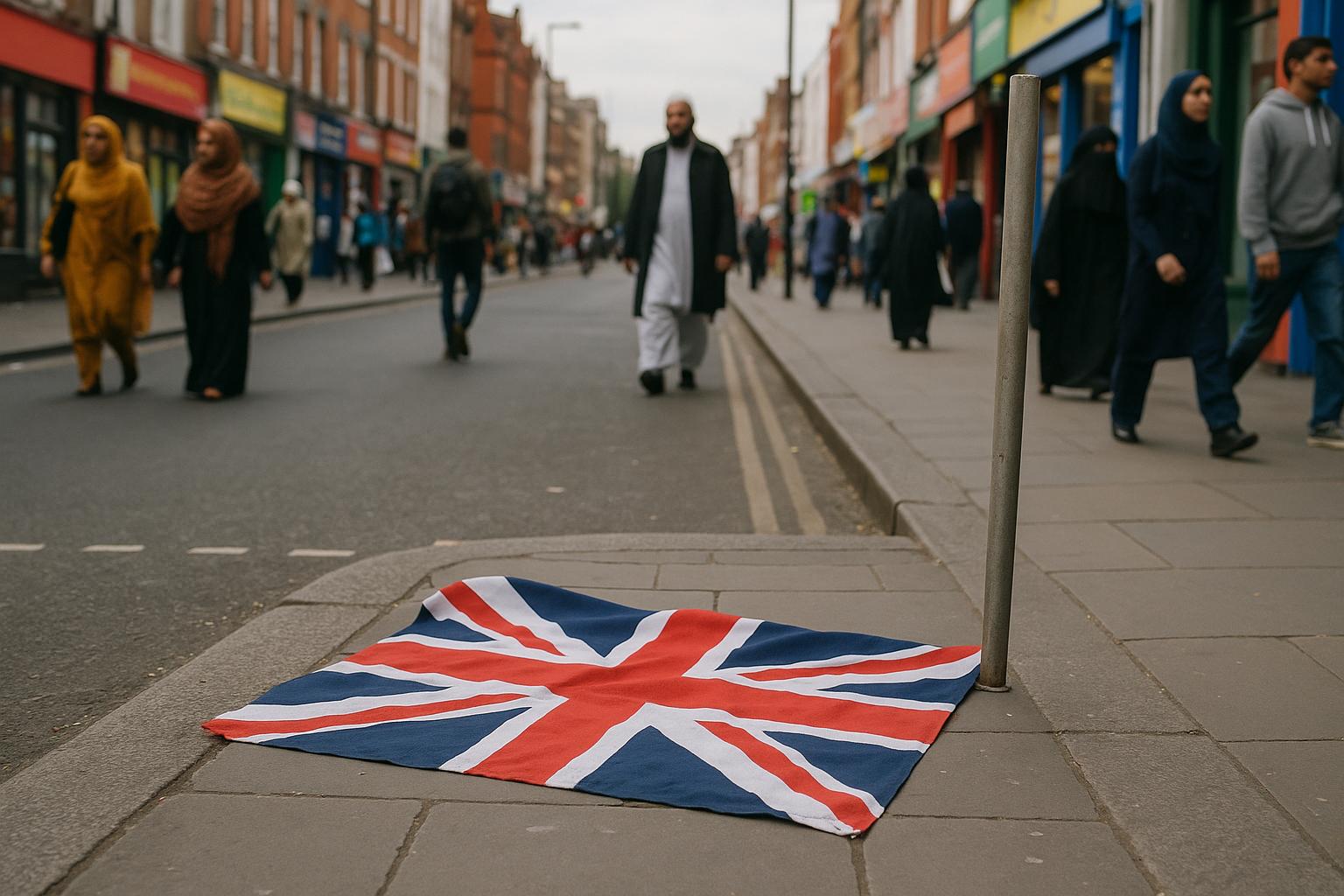A controversy has erupted in Tower Hamlets, east London, following the council’s removal of 78 St George’s Cross and Union Jack flags during a two-day operation in August. The flags were taken down from lampposts as part of the council’s routine maintenance policy, yet the move sparked significant public outrage due to the growing "Operation Raise the Colours" campaign, whereby residents displayed national flags across the country. Tower Hamlets Council removed 43 flags on August 18 and an additional 35 two days later, prompting accusations of bias and censorship.
The council had previously passed a Labour-led motion labelling individuals flying national flags in the borough as "far-right" extremists, warning that local far-right agitators were trying to stir division. This stance has fuelled tensions around the flag removals. Video footage emerged showing council workers using metal poles to take down the flags, attracting hostility from residents. One council worker named Tyrone revealed he faced intense abuse while carrying out the task, with residents urging him to stop and citing frustration over the perceived double standard—Palestinian flags had been allowed to remain for extended periods, while English and British flags were swiftly removed.
A Tower Hamlets council spokesperson stated the flag removal policy is applied uniformly, citing that between May 2024 and August 2025, 1,055 flags were removed—of which 977 were Palestinian and 78 British or English flags. The spokesperson emphasised that the council only removes flags placed on their infrastructure and that individuals remain free to fly flags on private property. They also noted that the borough proudly displays various flags on the Town Hall during national celebrations.
The council’s actions have drawn sharp criticism from political figures and commentators. Conservative Assembly member Susan Hall described the removals as "outrageous" and questioned why Palestinian flags were tolerated while national British flags were taken down. Shadow Justice Secretary Robert Jenrick condemned the removals as evidence of "blatant two-tier bias against the British people," highlighting the perceived selective enforcement of council rules. Similarly, Conservative leader Kemi Badenoch labelled the council’s approach "shameful" and inconsistent.
In response to the controversy, Reform UK launched a "patriotic flag pact," with twelve councils pledging not to remove St George’s Cross or Union Jack flags placed on lampposts. This bloc seeks to counteract perceived anti-patriotic measures like those in Tower Hamlets. Meanwhile, Downing Street affirmed that patriotism remains important to Prime Minister Keir Starmer, despite the disputes around the symbolism and display of national flags.
The situation underscores the ongoing complexities surrounding national symbols in diverse urban areas like Tower Hamlets. Social commentators have debated the meanings behind the flags, with some viewing the St George’s Cross as exclusionary in multicultural communities, while others see it as a vital expression of national pride. This divergence reflects broader tensions over identity, cohesion, and how communities interpret the celebration of national emblems.
The “Operation Raise the Colours” movement itself has sparked debate, as it has been linked to far-right activists in some quarters, further complicating the flag display issue. Residents are reportedly divided, with some feeling intimidated by the council’s removals and others decrying the council’s actions as a disregard for patriotic expression. As the row continues, Tower Hamlets remains a focal point for wider national conversations about patriotism, community values, and the role of public symbols.
📌 Reference Map:
- Paragraph 1 – [1], [6]
- Paragraph 2 – [1], [6]
- Paragraph 3 – [1]
- Paragraph 4 – [1], [3]
- Paragraph 5 – [1], [2], [3], [7]
- Paragraph 6 – [2], [5], [7]
- Paragraph 7 – [4], [6]
- Paragraph 8 – [6], [1]
Source: Noah Wire Services
